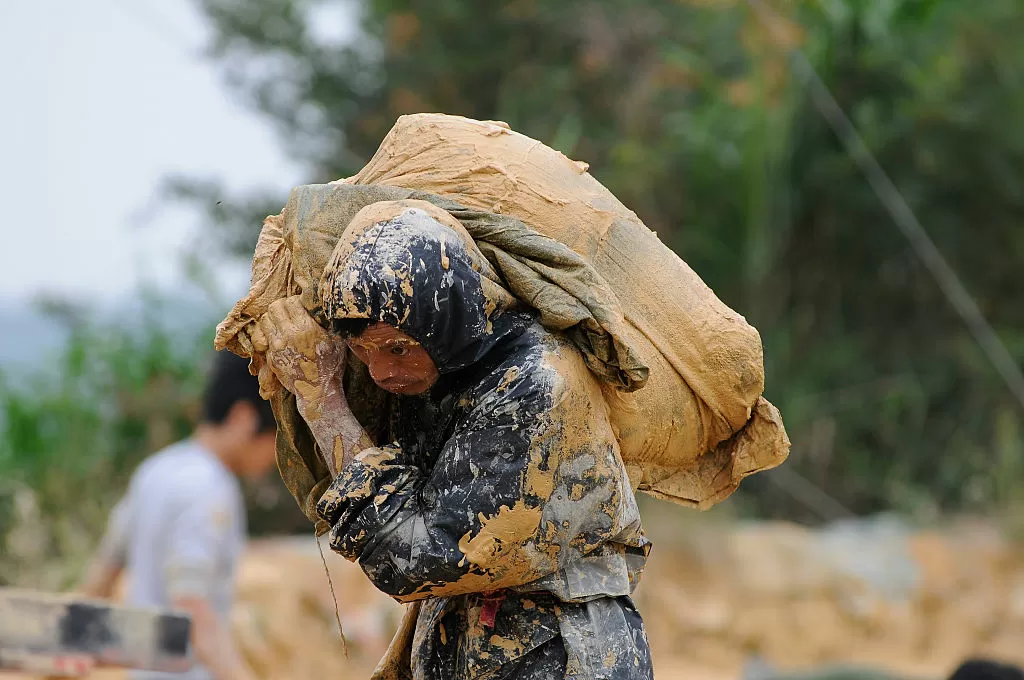China’s Rare Earth Export Controls: A Cause for Concern
In recent years, China has become a dominant player in the global market for rare earth elements. These elements, which are a group of 17 minerals that are critical components in various high-tech products, have been in high demand due to their use in smartphones, electric cars, and other cutting-edge technologies. However, China’s decision to tighten its control over the export of rare earth elements has raised concerns among the United States and its allies, as it poses a threat to their tech, defense, and supply chains.
China currently produces about 80% of the world’s rare earth elements, giving it a virtual monopoly over the market. In the past, the country has used this position to its advantage, restricting the export of these minerals to gain leverage in trade negotiations. However, in the face of a trade dispute with the United States, China has taken things a step further by imposing new export controls that could have far-reaching consequences.
One of the main concerns raised by these export controls is the potential disruption to the global supply chains for various high-tech products. Rare earth elements are used in the production of a wide range of tech products, from smartphones and laptops to wind turbines and satellites. Many of these products are heavily reliant on China’s supply of rare earth elements, and any disruptions in their availability could severely impact the production and cost of these products.
The United States, in particular, is heavily dependent on China for rare earth elements, with over 80% of its imports coming from the country. This dependency has raised concerns among U.S. officials, who see it as a threat to national security. In fact, in 2019, President Trump signed an executive order declaring a national emergency in the mining industry, with a particular focus on rare earth elements, citing concerns over the country’s reliance on China.
Moreover, China’s export controls have also raised concerns in the defense industry. Rare earth elements are crucial for the production of guided missiles, smart bombs, and other defense technologies. With China’s tight control over these minerals, there are fears that the country could use it as a bargaining chip in case of any potential conflict or trade tensions.
Apart from tech and defense, these export controls could also have an impact on global efforts towards sustainability. Rare earth elements are essential for the production of clean energy technologies, such as electric cars and solar panels. With China’s dominance in the market, any disruptions in the supply chain could hinder the transition to clean energy and have negative consequences for the environment.
Furthermore, China’s export controls also pose a challenge for other countries that are looking to develop their own rare earth element resources. With China’s competitive pricing and dominant position in the market, it has become challenging for other countries to compete. This has resulted in a decline in investment in mining and exploration of rare earth elements outside of China, creating a risk of a global supply shortage in the future.
To address these concerns, the United States and its allies are taking steps to reduce their reliance on China for rare earth elements. The U.S. government has launched initiatives to revive its domestic production and diversify its rare earth element supply chain. Japan, which is also heavily dependent on China for rare earth elements, has announced a plan to invest in a rare earth element mine in Vietnam, as well as exploring other options such as recycling.
In conclusion, China’s recent move to tighten its control over rare earth element exports has raised the stakes for the global market. With the country’s dominant position in the market, its actions could have far-reaching consequences for the tech, defense, and sustainability industries. It is essential for the international community to work together to find alternative sources and reduce their reliance on China to avoid any potential disruptions in the global supply chain.



